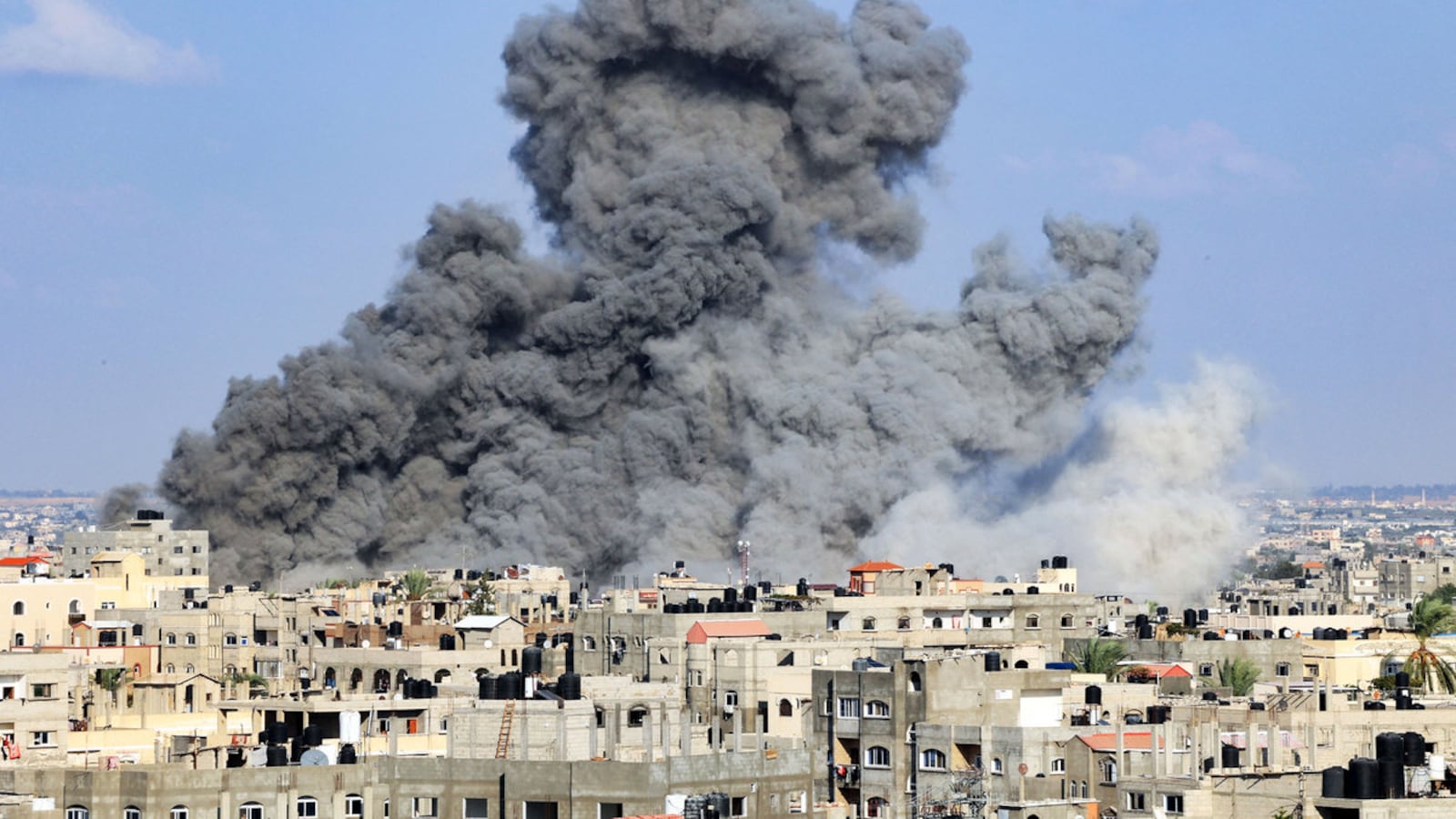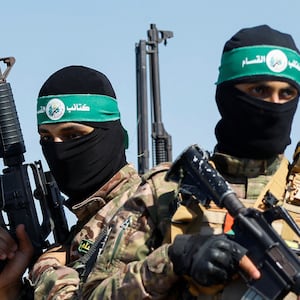The future trajectory of the Israel-Hamas war is uncertain, but there can be no doubt about one thing: A ground invasion of Gaza is coming, and soon.
Prime Minister Benjamin Netanyahu can no more refrain from a ground invasion and occupation of this slender strip of congested land than President George W. Bush could refrain from attacking al-Qaeda and its Taliban hosts in Afghanistan after 9/11.
The Israeli public’s blood is understandably up, and for the new unity war government in Jerusalem the immediate military objective is unambiguous: degrade Hamas’ military capabilities to the point where the organization can no longer inflict substantial punishment on Israeli citizens from Gaza.
“The government has no choice politically” but to mount a ground attack, said Chuck Freilich, a former deputy national security adviser. In an interview with The New York Times, he added, “The public is so shaken and dismayed and wants to see a real change in the situation.”
Most military experts believe the assault into the strip will almost certainly be a multi-pronged attack by ground forces advancing under an umbrella of close air and artillery support, as well as naval gunfire from the Mediterranean. The operation is sure to be both more powerful and aggressive than any of the three previous offensives launched by the IDF (2012, 2014, and 2021) into Gaza, each of which concluded with the IDF having “mowed the lawn” sufficiently to halt Hamas’ military operations for a considerable period of time.
The imminent invasion will have as its objective something more ambitious than the earlier ones: the permanent reduction of Hamas’ capacity to manufacture rockets, train troops, and mount rocket or infantry attacks. Unlike the previous three attacks, an extended period of IDF occupation will be necessary to achieve that ambitious objective.
The consensus among military analysts is that Israel can and will succeed in this quest, at least in a tactical and operational sense, but there are significant reasons to question whether the operation will be strategically successful—if the definition of such success is a significant and sustained improvement in Israeli security.
The alternative, of course, is that the sheer brutality and destruction that will accompany such an invasion will eviscerate the wave of international moral support for Israel and lead to an escalation of the war to include attacks from Hezbollah in Lebanon or other groups that have been trained and supported by Iran’s highly skilled Quds force—which is sort of a cross between America’s CIA and Special Forces that specializes in proxy warfare. It’s not inconceivable Iranian and Israeli forces might clash as well.
It bears mentioning that in irregular, or asymmetric warfare, tactical and operational success by conventional military forces has a strange way of devolving into strategic failure.
Recent American military history offers many examples of this. The most prominent are surely the Tet Offensive in Vietnam in January 1968 and the Taliban defeating the U.S. in Afghanistan.
In Tet, the Americans and South Vietnamese repulsed a massive simultaneous attack on more than 100 targets objectives by 80,000 Vietcong and North Vietnamese soldiers, killing half of the attack force within two months and regaining all the lost territory.
Trouble was, the very fact that the communists could mount such an operation put the lie to the idea that the United States could win the war through force of arms. President Lyndon Johnson decided in late March 1968 to start turning the bulk of the fighting over to the South Vietnamese. The United States was no longer in the business of trying to defeat the communists.
In Afghanistan, American forces never lost a major battle against the Taliban and its allies. But it didn’t matter, because U.S. military operations did nothing to address the fatal flaws in the U.S.-supported Kabul government, which remained utterly corrupt and dysfunctional from the early days of the war until it fell apart without a serious fight in 2021.
How would the Israeli ground invasion proceed?
Drawing on our knowledge of past assaults into Gaza, it seems clear that after supporting arms of artillery and air power have finished reducing all of the extant Hamas military infrastructure, ground forces supported by armor and air cover will penetrate the strip from the Erez crossing in the far north, near the town of Bureij, where there is a ridgeline overlooking central Gaza. Other IDF columns will approach from the south, just east of Khan Yunis. There is a third possible avenue of approach near Rafa that might also be exploited.
Of course, the Israeli command isn’t about to telegraph the invasion plan. IDF spokesman Lt. Col. Richard Hecht told The New York Times on Thursday that “the IDF and all our units, the whole general staff… is preparing multiple operational contingency plans. It could be from the air, it could be combined from the sea and air, and we’re waiting to see what our political leadership decides about a potential ground war. This has not been decided yet.”
No matter how the attack unfolds, Hamas’ commanders know every inch of their territory. They are intimately familiar with all the possible avenues of approach to Gaza.
While the Israelis are developing the assault plan, Hamas is actively and energetically reinforcing its defensive positions along those routes, laying substantial road mines, and setting up ambush positions manned by infantry supported by mortars, rockets, and plentiful Kornet anti-tank missiles.
No doubt, many of the tunnels destroyed in the most recent Israeli incursion, in 2021, have been rebuilt and restocked with weapons, supplies, and communications equipment.
Given the shock and severity of Hamas’s initial attack, the Israeli response will almost certainly result in more civilian casualties and destruction than any of the earlier operations.
How the presence of approximately 150 hostages will affect the pace and trajectory of operations is impossible to know at this time. If no hostage exchange can be arranged through intermediaries, Israeli special forces will be engaged in a running series of recovery raids as precise intelligence becomes available.
Given these realities—and the extensive media coverage the war is sure to receive—it may well be that a humanitarian crisis will put immense international pressure on Jerusalem to curb the ferocity of its assault.
Given the deep wounds and trauma produced by Hamas’ initial attack, my guess is that Israel will press forward aggressively until it has rendered its adversary militarily ineffective. Fasten your seatbelts.









